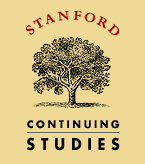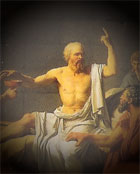Anaximander
1.
Anaximander was a pupil of Thales - Anaximander, son of Praxiades, a Milesian. He said that a certain infinite nature is first principle of the things that exist. From it come the heavens and the worlds in them. It is eternal and ageless, and it contains all the worlds. He speaks of time, since generation and existence and destruction are determinate.
Anaximander said that the infinite is principle and element of the things that exist, being the first to call it by the name of principle. In addition, there is an eternal motion in which the heavens come into being.
The earth is aloft, not supported by anything but resting where it is because of its equal distance from everything. Its shape is rounded, circular, like a stone pillar. Of its surfaces, we stand on one while the other is opposite. The heavenly bodies come into being as a circle of fire, separated off from the fire in the world and enclosed by air. There are certain tubular channels or breathing-holes through which the heavenly bodies appear; hense eclipses occur when the breathing-holes are blocked, and the moon appears sometimes waxing and sometimes waning according to whether the channels are blocked or open. The circle of the sun is twenty-seven times greater <than the earth and the circle> of the moon <is eighteen times greater>. The sun is highest, the circles of the fixed stars lowest.
Animals come into being <from moisture> evaporated by the sun. Humans originally resembled another type of animal, namely fish.
Winds come into being when the finest vapours of air are separated off, collect together and move. Rain comes from vapour sent up by the things beneath the sun. Lightning occurs when wind breaks out and parts the clouds.
He [Anaximander] was born in the third year of the forty-second Olympiad [610/609 BCE].
(Hippolytus, Refutation of all Heresies I vi 1-7)
2.
Of those who hold that the first principle is one, moving, and infinite, Anaximander, son of Praxiades, a Milesian, who was a successor and pupil of Thales, said that the infinite is principle and element of the things that exist. He was the first to introduce this word 'principle' <??>. He says that it is neither water nor any other of the so-called elements but some different infinite nature, from which all the heavens and the worlds in them come into being. And the things from which existing things come into being are also the things into which they are destroyed, in accordance with what must be. For they give justice and reparation to one another for their injustice in accordance with the arrangement of time [12 B 1] (he speaks of them in this way in somewhat poetical words). It is clear that he observed the change of the four elements into one another and was unwilling to make any one of them the underlying stuff but rather chose something else apart from them. He accounts for coming into being not by the alteration of the element, but by the separating off of the opposites by the eternal motion.
(Simplicius, Commentary on the Physics, 24.13)
Thales | main | Heraclitus

